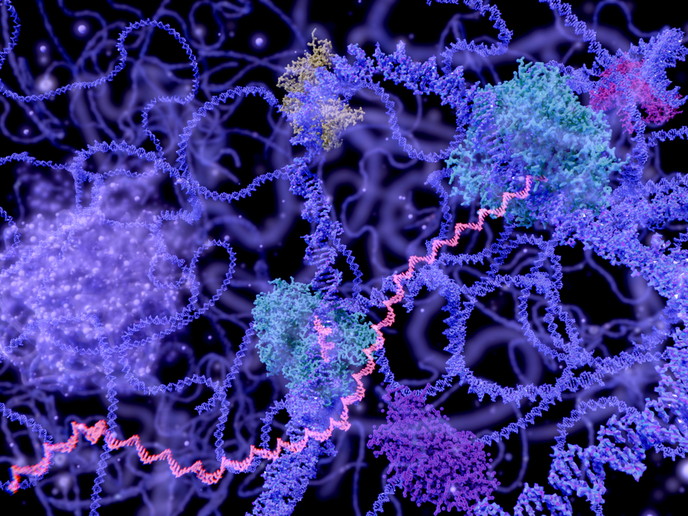Study offers hope for tackling aggressive cancers
Epigenetic mechanisms have generated considerable research interest in recent years because of their role in various disorders and fatal diseases, such as cancer. To develop therapeutic approaches targeting these conditions, scientists have been focusing on the processes in which cells respond to changes in their environment by regulating the activity of their genes. Partially supported by the EU-funded CHROMABOLISM project, a team of researchers has examined the interaction between a specific epigenetic protein, known as BRD4, and a metabolic enzyme, MTHFD1, to analyse the regulation of genes. The study was published in the journal ‘Nature Genetics’. Until recently, scientists have believed that metabolites – substances involved in metabolism – simply diffuse in the cell in order to be used if necessary. However, there is also increasing evidence that the accumulation of metabolites in subcellular compartments can coordinate specific cellular processes. To address this hypothesis, the team involved in the CHROMABOLISM (Chromatin-localized central metabolism regulating gene expression and cell identity) project set out to investigate whether enzymes related to cancer metabolism have a direct impact on chromatin remodelling, epigenetic regulation and gene transcription by localising in the chromatin environment and influencing the concentration of metabolites. The study demonstrates how the inhibition of the Bromodomain-containing protein 4 (BRD4) or methylenetetrahydrofolate dehydrogenase, cyclohydrolase and formyltetrahydrofolate synthetase 1 (MTHFD1) leads to changes in nuclear metabolite composition and gene expression, resulting in reduced cancer cell viability. “We show that a fraction of MTHFD1 resides in the nucleus, where it is recruited to distinct genomic loci by direct interaction with BRD4. Inhibition of either BRD4 or MTHFD1 results in similar changes in nuclear metabolite composition and gene expression; pharmacological inhibitors of the two pathways synergize to impair cancer cell viability in vitro and in vivo. Our finding that MTHFD1 and other metabolic enzymes are chromatin associated suggests a direct role for nuclear metabolism in the control of gene expression.” Metabolism and gene expression, biological processes that are fundamental to all living organisms, regulate each other to maintain homeostasis and control cell growth, survival and differentiation. Metabolism contributes to the regulation of gene expression via metabolic enzymes and metabolites that can modulate chromatin directly or indirectly. Deregulation of these activities has been implicated in various diseases, including cancer. A news release by the project’s host institution, Research Center for Molecular Medicine of the Austrian Academy of Sciences, states that the study has clinical significance for BRD4-dependent tumours. “This includes tumors that harbor genetic aberrations leading to BRD4 overexpression, but also many other cancers in which BRD4 contributes to cell growth by its gene regulatory function. Accordingly, pharmaceutical companies have developed highly active BRD4 inhibitors, which are currently being tested in clinical trials.” It also notes that although substances that inhibit the folate cycle, known as antifolates, have been used for over 70 years in cancer therapy and against inflammatory conditions like rheumatoid arthritis, the use of a single chemical agent may not always be successful due to drug resistance. “The discovery of the interaction of BRD4 and the enzyme MTHFD1 from the folic acid metabolism promises new approaches in cancer combination therapy,” it adds. Work from another two EU-funded projects also contributed to this study. ChromatinTargets (Systematic in-vivo analysis of chromatin-associated targets in leukemia) concentrated on advancing a novel approach to facilitate the investigation of chromatin-associated vulnerabilities at an unprecedented level of depth. BET(ter) targets (Targeting BET Bromodomains in Cancer – Mechanisms of Sensitivity and Resistance) analysed epigenetic mechanisms in cancer and therapy resistance and focused on BRD4. For more information, please see: CHROMABOLISM project page ChromatinTargets project page BET(ter targets project page)
Countries
Austria



